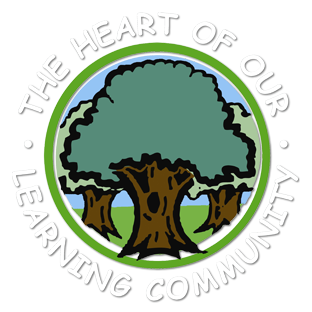The SHARP Learning Behaviours
The SHARP Values were created by the children for the whole school community and have become an integral part of the school’s identity and sense of belonging. At Sharps Copse Primary, we respond to evidence that effective social emotional learning improves learning outcomes, and short-term and longer-term wellbeing outcomes. The SHARP Learning Behaviours Curriculum was adapted from The Six Strands Learning Behaviours Curriculum developed by a group of professionals working with Hampshire Primary Behaviour Service.
The aim in introducing the SHARP Learning Behaviours in our school was to provide children and adults with a clear, positive framework for developing the key values of Standards, Honesty, Attitude, Resilience and Pride. There are Curriculum Targets for Year R, KS1 and Lower KS2 and Upper KS2. At Sharps Copse, these behaviours reinforce the values for our whole community.
How we use the SHARP Learning Behaviours at Sharps Copse Primary School:
Level 1 Whole School Community Level
We use the SHARP Learning Behaviours to develop key learning behaviours in school through themed assemblies that focus on a different school value each half term. The School Values are clearly displayed in the assembly halls where we gather and are referred to in assemblies and at other times. Children who show the SHARP Learning Behaviours during the day can be recognised anywhere in school and they are given a SHARP Shark by our Leadership Team who celebrates and discusses their achievement. In classes we award SHARP Sharks too. These daily achievements work towards a weekly SHARP Role Model of the Week and the coveted SHARP Role Model of the Half Term which focuses on a different SHARP Value each half-term and are celebrated in celebration assemblies.
Level 2 Class Community Level
In every class in school, teachers display the SHARP Learning Behaviours. The displays are used as a working wall to indicate the whole class target for the week and their progress against their whole class targets over time. The children then have a weekly SHARP Learning Behaviours Session (affectionately known as wellbeing sessions) in which the children gain knowledge and skills to improve wellbeing, gain social skills and develop skills to self-regulate. At a class community level, the teacher (often in negotiation with the class) identify a target which is shared and discussed as a class group. Adults notice children making progress against these targets and this is celebrated. As the class makes progress they move onto focusing on other targets. The focus target is changed each week. The child who makes the most progress in developing their learning behaviours that week is celebrated in assembly with a certificate. All staff use the language of the SHARP Learning Behaviours daily when developing learning behaviours; the lunchtime team have also started focusing on this at lunchtimes.
Level 3 Individual Child Level
We use the SHARP Learning Behaviours with individual children who need some extra support to develop positive learning behaviours. We use the walls to identify strengths and areas to develop, working with as many stakeholders as possible including the class teacher, support staff, parents and the child. This helps us to identify and prioritise the learning behaviours to focus on next, as well as to recognise the success for that child. We choose two targets and identify how we are going to develop and teach skills as needed. Our PDBA Team then work with the child, teacher and adult at home to help children self-regulate and make reasonable adaptations to maximise their chance of having a happy and productive experience at school. This is then shared with all stakeholders and reviewed regularly.
Impact
The children of Sharps Copse Primary School learn about the SHARP values, and unpick what it means to show each of the SHARP values, in assemblies and in their classes. There is now a common language which is focused on developing children’s learning behaviours, working from a starting point of what they can do and targeting the areas for development in a positive, progressive and strategic way which children can understand.
